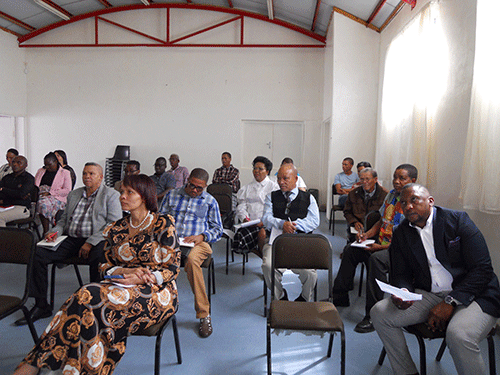KEETMANSHOOP – Members from the public and private sectors as well as the general public in the //Kharas region attended the National Anti-Corruption Commission’s (ACC) regional forum on its strategy and action plan implementation in Keetmanshoop yesterday.
Governor Aletha Frederick described the National Anti-Corruption Strategy and Action Plan as a tool for fostering cooperation and continued synergy in attaining the national vision for a corrupt-free Namibia across all sectors and spheres of society.
“Therefore, the fight against corruption requires the involvement of all stakeholders to maintain a healthy nation,” she emphasised.
Frederick continued the forum is a platform created to share information and engage stakeholders regarding the progress of its implementation.
“This is done to avoid the strategy being implemented only from the central side of the country; hence, this forum is another way of operationalising the strategy at the regional level,” she said.
The governor, who will also serve as chairperson of the forum, added that to oversee the implementation of these actions, there are four bodies to access progress made, of which the regional forum is one.
“The implementation of the National Anti-Corruption Strategy furthermore makes provision for the hosting of the regional forums, headed or chaired by the regional governors,” she added.
Junias Iipinge, ACC senior investigating officer, said one of the main challenges faced by the agency is a lack of manpower.
“Due to the alarming rate of investigators leaving the ACC, the ratio now becomes one officer, serving 101 600 citizens in the country,” he said. Iipinge also informed the stakeholders’ cases reported are normally investigated on their own merits.
“Comparing a case of misusing government transport against one of misappropriating millions of State funds, it is logical sense that the latter case will be given priority,” he explained.
The ACC officer said, with the resignation of staff members, cases must now be divided between the other colleagues, thereby increasing the backlog of cases to be investigated.
He also reported the agency in the Khomas region received 58 reports of alleged corrupt practices, of which 36 were dealt with, while the remaining 22 were carried over to the 2022/2023 financial year.
As part of its mandate, the agency has to receive and investigate allegations, and in addition, educate and solicit support from the public.



